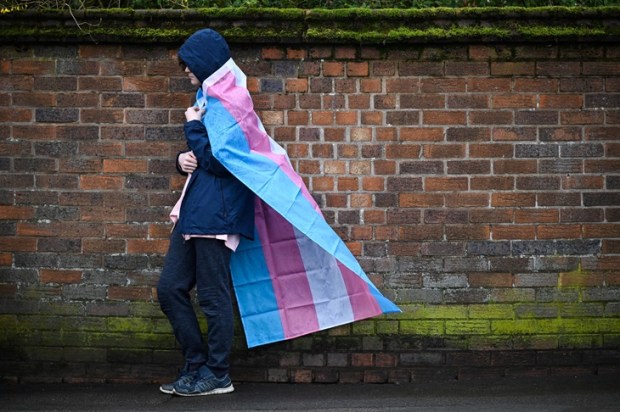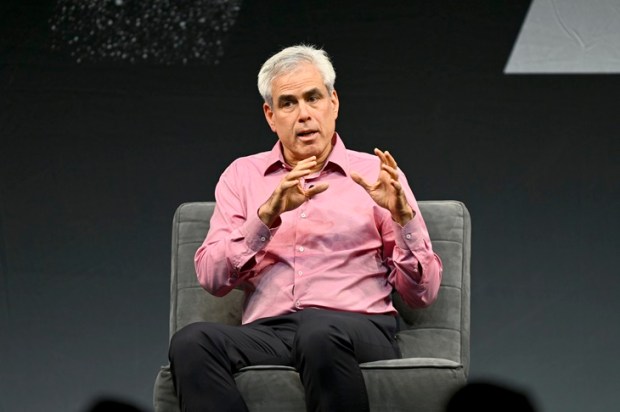The attempted and actual murder of anyone is horrific. What I find perplexing is the tone of disbelief that accompanies the horror.
We are soft-headed in our understanding of human nature. History tells us that we are violent creatures. Our physicality leads to the dominance of some over others by use of brute force. This is particularly true in the face of threats, even if the actual threat is only perceived.
It is why, in our earliest societal structures, physical coercion was a routine part of the social order. Those in power would play the system and develop one rule for ‘them’ and another for ‘us’. The ‘them’ and ‘us’ grouping was defined by membership to a group, not individual character.
As Larry Siedentop discovered, the concept of the individual developed when a little tribe of Israelites were told by their Creator that everyone was to be subject to the Natural Law (or the Ten Commandments). This applied to the ruling classes of prophet, priest, and king as much as others.
The Israelites had trouble breaking old habits still rife in surrounding tribes, but enough of the lesson stayed alive for the next teacher of universal respect – Jesus of Nazareth. He, and the subsequent disciples, learned to apply universal respect even further. The Apostles Peter and Paul, amongst others, made clear that this was a principle of relationship for not only those within the Israelite community, but beyond it. This outworking of each person being made ‘in the image of God’ is what surprised Tom Holland in his search for the Western mind:
It was not just the extremes of callousness that unsettled me, but the complete lack of any sense that the poor or weak might have the slightest intrinsic value … assumptions that I had grown up with – about how a society should properly be organised, and the principles that it should uphold – were not bred of classical antiquity, still less of ‘human nature’, but very distinctively of that civilisation’s Christian past.
Note Holland’s description of ‘extreme callousness’ and the lack of respect for the poor and weak that he found outside of ‘civilisation’s Christian past’. The basis of that surprise, founded on naivety about human nature and thus human society, is what I see daily in teaching adults – young adults and older ones. They have not been taught about the problems that faced humanity in the past. In our contemporary educational classrooms, ancient societies are presented as little Edens, while internal and external conflicts (wars) are presented as carefully constructed plots of unusual political leaders.
Australia does not escape this uncomfortable reality. Senator Jacinta Nampijinpa Price is a realist when it comes to confronting history.
Writing in The Australian she said:
Even by standards of the time, there was retrograde behaviour such as infanticide and violent payback practices that often involved the slaughtering of men, women and children.
Tribal wars were rife, and violence to achieve compliance within the local mob was common. This behaviour is normal in the history of the world.
Significant parts of our civilisation have moved on. Some want to attribute this social progress to the Enlightenment, others to social evolutionary theory (the weakest explanation in my thinking), and still more to the idea that some people became increasingly committed to the ‘image of God’ heritage.
In our sheltered world of prosperity and comfort, we ignore this brutal past at our peril. Douglas Murray has been warning of this for some time. As he noted in The Madness of the Crowds:
The interpretation of the world through the lens of ‘social justice’, ‘identity group politics’ and ‘intersectionalism’ is probably the most audacious and comprehensive effort since the end of the Cold War at creating a new ideology.
The new ideology is the threat to what American political scientist Charles Murray describes as the ‘American Creed’ in his latest book, Facing Reality:
‘We are all created equal … endowed by the Creator with certain unalienable rights … liberty, equality, democracy, individualism, human rights, the rule of law, and private property.’
Charles Murray describes democratic societies where the West lives as a garden surrounded by an aggressive jungle. He notes that the garden is unnatural. The jungle is the natural state of human society.
There are two protectors of the garden of the West according to Charles Murray – treating our fellow human beings as individuals instead of treating them as members of groups, and the voluntary limiting of ‘one’s wealth, status, or power’.
It is the social prioritising of these principles that is being challenged in what we are seeing through current so-called social science theories. We see a return to tribalism, both political and racial. As the Douglas Murray described so well:
In recent years an insidious current has developed that has chosen to reject Dr King’s dream, and insist that content of character is nothing compared to the colour of someone’s skin. It has decided that skin colour is everything.
There is an old proverb that says, ‘Without a transcendent vision, the people run amok.’ As Jon Haidt has described in his latest book, The Anxious Generation:
There is a hole, an emptiness in us all, that we strive to fill. If it doesn’t get filled with something noble and elevated, modern society will quickly pump it full of garbage.
Garbage takes us back to the shame-driven impulses of protecting the clan at all costs and ignoring the nobility of the individual in front of us, even if they are our enemy. So, while we can be bitterly disappointed by another assassination attempt, why are we surprised? We do not know the details of the alleged assailant, but it is conceivable that because President Trump has been branded the enemy of that tribe, some zealot has possibly sought to do his tribe a favour (again noting that the shooter is now dead, and so we may never know with certainty his core reasons for what happened).
However, such threats based on group affiliation are central to the history of the world, unless we continue to rediscover the surprise of seeing each and every person, male and female, from different tribes, with different roles, as carrying the unique worth that is grounded in a reality bigger than all of us.

























